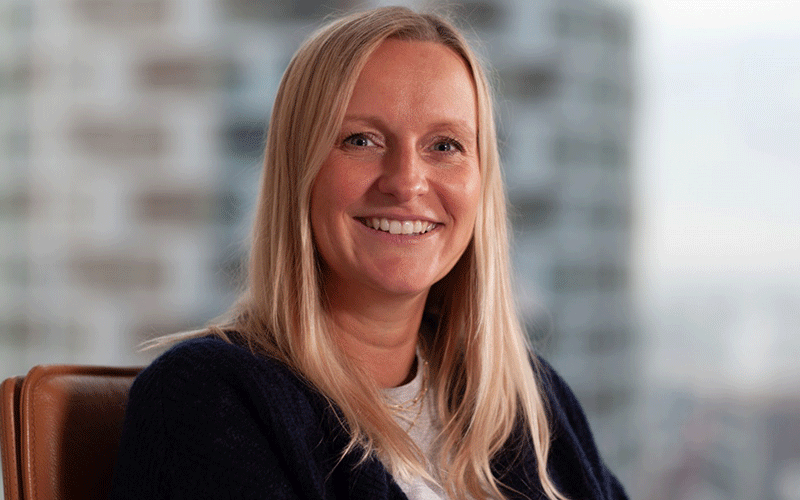The Last Word January/February 2022: Lynne Peabody

Offer hybrid learning and working to find future young leaders
A hybrid model can be particularly effective for youth employability programmes and contributes to an essential ‘levelling up’ of opportunity, new research from the Learning & Work Institute into the impact of virtual working during Covid-19 has found.
Commissioned by the EY Foundation, the research revealed that the virtual model introduced during the pandemic as a necessity actually became a lifeline for some, as those from lower socio-economic backgrounds or who live further away from city centres, were given the same change to participate as their better-off peers in programmes and other job opportunities.
It's a win-win for employers too, as the talent pool is deeper, wider and more diverse as a result.
Talent and potential must be embraced and developed – not overlooked and ignored”
At the EY Foundation, we want to ensure we are achieving measurable impact in support of young people, which drove our desire to quickly understand how to deliver virtually in the most effective way – and then help other organisations by sharing our findings.
Two key recommendations:
- Identify when face-to-face matters and incorporate into the programme – for instance, the first day could be an opportunity for people to get to know each other face-to-face, pick up equipment, ask questions, learn to use technology and establish ground rules.
- Use online delivery to improve inclusivity for students who may struggle to attend in person. For instance, let young people communicate in ways that suit them – this might be chat, using a microphone or ‘liking’ other people’s comments. Establish blurred backgrounds and headphone use for staff, volunteers and young people so no one feels uncomfortable about their home environment.
Other learnings that will be useful for providers considering hybrid delivery to young people include:
- Use an initial assessment to get a full picture of every young person’s needs and confidence with digital tools.
- Provide clear instructions, support and encouragement on how to use the digital tools they need.
- Provide all the technology young people need – laptops, WiFi dongles, software and headphones.
- Brief young people on how to behave in an online workplace so they understand what behaviour is expected of them before they start.
- Invest in online teaching and learning for staff and volunteers.
- Invest equal time and money in online delivery – it is not a cheap alternative.
- Avoid using terms like ‘real life’ versus digital. Recognise digital relationships and communications as an integral part of modern working practices.
- Give young people experience of working both online and in a face-to-face environment; gradually build upon the responsibilities they are given.
- Make online work experience tasks real – show them what will happen with the work they have done.
- Use online networks to link young people with, for example, Black or LGBTQIA+ people in their work experience organisation.
Our young people are bright, driven; you could argue they’re already likely to do well. But that misses the point. Talent and potential must be embraced and developed – not overlooked. They can become future leaders and drive wider change. Hybrid learning and working is one clear route to a more equitable future for the next generation.
Lynne Peabody is acting CEO of the EY Foundation
